The boards of both Arrabawn and Tipperary co-ops made presentations to milk-supplying members in recent days, outlining the details of the proposed merger of the processors.
The mood among suppliers at the first Arrabawn meeting could be described as “cautiously welcoming” of the deal.
While several raised concerns about the amount of debt that the new Arrabawn Tipperary Co-operative Society would have, there was general agreement that in the current dairy processing landscape, bigger is better. The added optionality the new co-op would have from owning a second processing facility, focused on a different range of products, was also cited as advantageous.
The point was also made at the first Arrabawn meeting, held in Nenagh, that geographically the deal makes good sense.
The mood at the first meeting of Tipperary suppliers on Monday night was less conciliatory.
There was some dismay expressed at the valuation given to Tipperary Co-op for the merger, and questions asked about why more work wasn’t done to examine other possible deals.
The board of the co-op also faced questions on the performance of the processor in recent years as the milk price paid to suppliers had often been one of the lowest in the country.
Valuation
Both suppliers heard that the co-ops were valued by independent financial advisers in order to calculate the share each would have of the new processor. Those shares worked out at 75.5% Arrabawn and 24.5% Tipperary.
If the merger is agreed, then an interim board would be formed with representation from each co-op based on that ratio.
During the interim period, the representative structure would be reorganised on a regional basis, which would mix Tipperary and Arrabawn suppliers together.
A new 15-member board would then be elected from those regions by March 2027.
The key date for the merger is now 7 November when suppliers of both co-ops will vote on the proposal. The Tipperary vote will be held at the co-op’s premises on Station Road in Tipperary Town, while Arrabawn suppliers will meet in the Abbey Court Hotel in Nenagh. Both votes will be held at noon on the day.
Under co-op rules, only milk supplying members will have a say on the deal.
A quirk in Tipperary’s rules means that dry shareholders are entitled to attend the meeting, but will not have a vote.
If 75% of present and voting members of both co-ops vote in favour of the deal, then it is passed.
The “voting and present” qualification is important as it means that suppliers who don’t attend the meeting, or attend the meeting and don’t vote, will not count towards the total turnout.
For example, if a co-op has 400 member suppliers and 200 turn up and vote, then only 150 votes in favour would be needed to pass the deal.
Second vote
If the vote in favour is less than 75%, but more than 50% of those “voting and present”, then a second vote would be called in the following weeks. If that vote is again passed by a simple majority of 50% plus one vote, again the deal would be passed.
If a majority of voting and present members reject the deal at either vote, then the merger is off.
If the deal is passed, then there would be a pause for regulatory approval, and backing from lenders, before the new co-op would be formed.
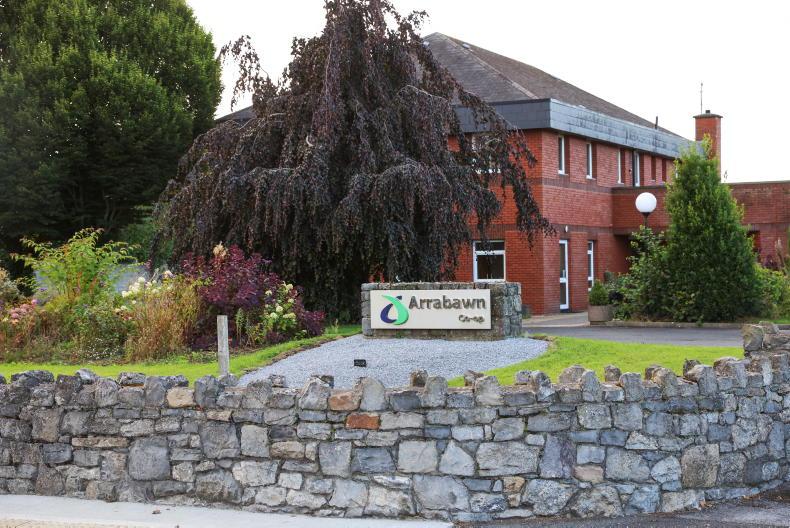
Arrabawn Co-operative creamery, Stafford Street Nenagh, Co Tipperary. \ Odhran Ducie
The boards of both co-ops have unanimously recommended the deal.
Conor Ryan, CEO of Arrabawn, said there are opportunities for cost savings and rationalisations within the new organisation where processes could be simplified and duplication of roles in management and administration could be reduced. He said there is the potential for €8m to €9m of savings per annum.
On the production side, both co-ops pointed to the benefits of having a larger milk pool and wider product portfolio, which could provide the opportunity for greater future returns to farmers. All suppliers to the new co-op would be paid the same ‘competitive’ milk price.
Casein
While Arrabawn’s concentration on casein in recent years has paid dividends for the Nenagh-based operation, Ryan said there would be advantages in having a wider product mix and the access to new markets which would come with Tipperary.
Both co-ops also pointed to the valuable asset, the profitable Tippagral cheese operation in France, that would come as part of the deal.
If the deal is progressed, Tipperary’s debt would become part of the debt of the new co-op. The level of debt at the new co-op would be around 2.6 times EBITDA – around the same level as where Dairygold was at the end of 2023.
This would open the possibility of being able to negotiate a lower interest rate on the debt, which would be an instant saving for the co-op.
Merger of the two co-ops makes sense
The first thing to be said about this proposal is that, for whatever reason, it is the only one on the table for members of Tipperary Co-op.
That co-op’s financial situation has left it with a weak hand when trying to do a deal about its future.
However, the proposed merger with Arrabawn does seem to give a fair value to Tipperary in its current position.
There are clear advantages for both operations from a purely business sense, as a merger would bring increased scale and wider product opportunities, coupled with potential cost savings.
Farmers in control
But there is also the important matter of farmers remaining in control of the milk processing.
While some members of Tipperary Co-op are disappointed about the 24.5% valuation of their operation in the new entity, each of those suppliers will continue to hold the same value of shares. They will also continue to have meaningful representation on the board and a say in how the processor is run – something that would be diluted in a much larger organisation.
Potential opportunities
There have been some complaints around other potential opportunities for Tipperary not being examined closely enough.
However, it would be likely that under those mooted proposals, Tipperary would be little more than a source of milk for a much larger processor, leaving suppliers stranded as milk-price takers, while being left with an under-used processing facility and a significant pile of debt.
For both members of Arrabawn and Tipperary, the merger should make sense, but also it would hold true to the ideas behind why dairy co-operatives were formed in the first place, and why they have been so successful for so many years.
Boards of both co-ops unanimously recommend merger.Merger vote at noon on 7 November.Valuation is 75.5% Arrabawn and 24.5% Tipperary.Same milk price for all suppliers.New organisation would be Arrabawn Tipperary Co-operative Society.
The boards of both Arrabawn and Tipperary co-ops made presentations to milk-supplying members in recent days, outlining the details of the proposed merger of the processors.
The mood among suppliers at the first Arrabawn meeting could be described as “cautiously welcoming” of the deal.
While several raised concerns about the amount of debt that the new Arrabawn Tipperary Co-operative Society would have, there was general agreement that in the current dairy processing landscape, bigger is better. The added optionality the new co-op would have from owning a second processing facility, focused on a different range of products, was also cited as advantageous.
The point was also made at the first Arrabawn meeting, held in Nenagh, that geographically the deal makes good sense.
The mood at the first meeting of Tipperary suppliers on Monday night was less conciliatory.
There was some dismay expressed at the valuation given to Tipperary Co-op for the merger, and questions asked about why more work wasn’t done to examine other possible deals.
The board of the co-op also faced questions on the performance of the processor in recent years as the milk price paid to suppliers had often been one of the lowest in the country.
Valuation
Both suppliers heard that the co-ops were valued by independent financial advisers in order to calculate the share each would have of the new processor. Those shares worked out at 75.5% Arrabawn and 24.5% Tipperary.
If the merger is agreed, then an interim board would be formed with representation from each co-op based on that ratio.
During the interim period, the representative structure would be reorganised on a regional basis, which would mix Tipperary and Arrabawn suppliers together.
A new 15-member board would then be elected from those regions by March 2027.
The key date for the merger is now 7 November when suppliers of both co-ops will vote on the proposal. The Tipperary vote will be held at the co-op’s premises on Station Road in Tipperary Town, while Arrabawn suppliers will meet in the Abbey Court Hotel in Nenagh. Both votes will be held at noon on the day.
Under co-op rules, only milk supplying members will have a say on the deal.
A quirk in Tipperary’s rules means that dry shareholders are entitled to attend the meeting, but will not have a vote.
If 75% of present and voting members of both co-ops vote in favour of the deal, then it is passed.
The “voting and present” qualification is important as it means that suppliers who don’t attend the meeting, or attend the meeting and don’t vote, will not count towards the total turnout.
For example, if a co-op has 400 member suppliers and 200 turn up and vote, then only 150 votes in favour would be needed to pass the deal.
Second vote
If the vote in favour is less than 75%, but more than 50% of those “voting and present”, then a second vote would be called in the following weeks. If that vote is again passed by a simple majority of 50% plus one vote, again the deal would be passed.
If a majority of voting and present members reject the deal at either vote, then the merger is off.
If the deal is passed, then there would be a pause for regulatory approval, and backing from lenders, before the new co-op would be formed.

Arrabawn Co-operative creamery, Stafford Street Nenagh, Co Tipperary. \ Odhran Ducie
The boards of both co-ops have unanimously recommended the deal.
Conor Ryan, CEO of Arrabawn, said there are opportunities for cost savings and rationalisations within the new organisation where processes could be simplified and duplication of roles in management and administration could be reduced. He said there is the potential for €8m to €9m of savings per annum.
On the production side, both co-ops pointed to the benefits of having a larger milk pool and wider product portfolio, which could provide the opportunity for greater future returns to farmers. All suppliers to the new co-op would be paid the same ‘competitive’ milk price.
Casein
While Arrabawn’s concentration on casein in recent years has paid dividends for the Nenagh-based operation, Ryan said there would be advantages in having a wider product mix and the access to new markets which would come with Tipperary.
Both co-ops also pointed to the valuable asset, the profitable Tippagral cheese operation in France, that would come as part of the deal.
If the deal is progressed, Tipperary’s debt would become part of the debt of the new co-op. The level of debt at the new co-op would be around 2.6 times EBITDA – around the same level as where Dairygold was at the end of 2023.
This would open the possibility of being able to negotiate a lower interest rate on the debt, which would be an instant saving for the co-op.
Merger of the two co-ops makes sense
The first thing to be said about this proposal is that, for whatever reason, it is the only one on the table for members of Tipperary Co-op.
That co-op’s financial situation has left it with a weak hand when trying to do a deal about its future.
However, the proposed merger with Arrabawn does seem to give a fair value to Tipperary in its current position.
There are clear advantages for both operations from a purely business sense, as a merger would bring increased scale and wider product opportunities, coupled with potential cost savings.
Farmers in control
But there is also the important matter of farmers remaining in control of the milk processing.
While some members of Tipperary Co-op are disappointed about the 24.5% valuation of their operation in the new entity, each of those suppliers will continue to hold the same value of shares. They will also continue to have meaningful representation on the board and a say in how the processor is run – something that would be diluted in a much larger organisation.
Potential opportunities
There have been some complaints around other potential opportunities for Tipperary not being examined closely enough.
However, it would be likely that under those mooted proposals, Tipperary would be little more than a source of milk for a much larger processor, leaving suppliers stranded as milk-price takers, while being left with an under-used processing facility and a significant pile of debt.
For both members of Arrabawn and Tipperary, the merger should make sense, but also it would hold true to the ideas behind why dairy co-operatives were formed in the first place, and why they have been so successful for so many years.
Boards of both co-ops unanimously recommend merger.Merger vote at noon on 7 November.Valuation is 75.5% Arrabawn and 24.5% Tipperary.Same milk price for all suppliers.New organisation would be Arrabawn Tipperary Co-operative Society.





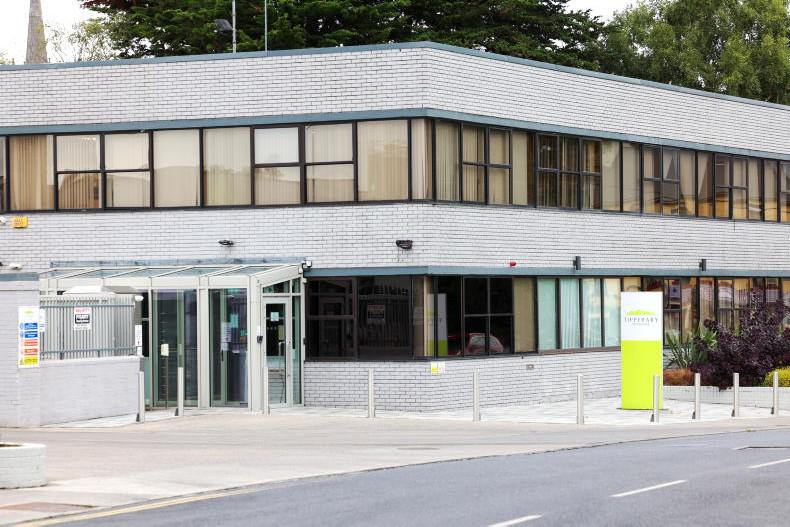
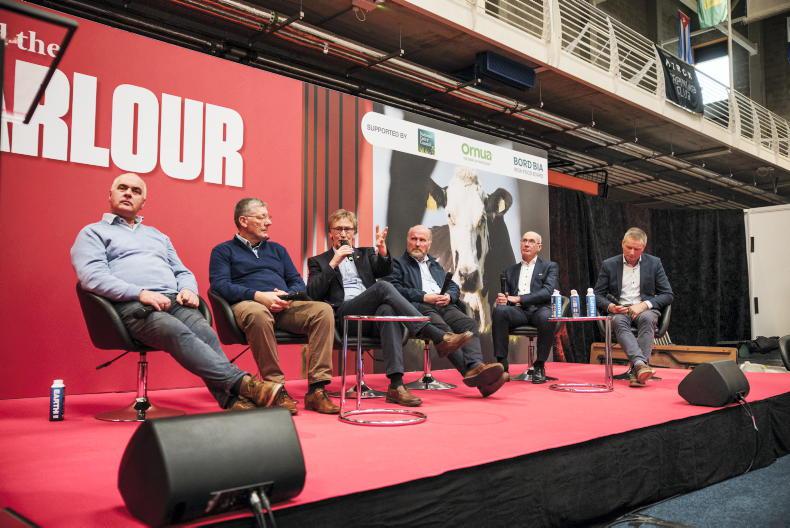


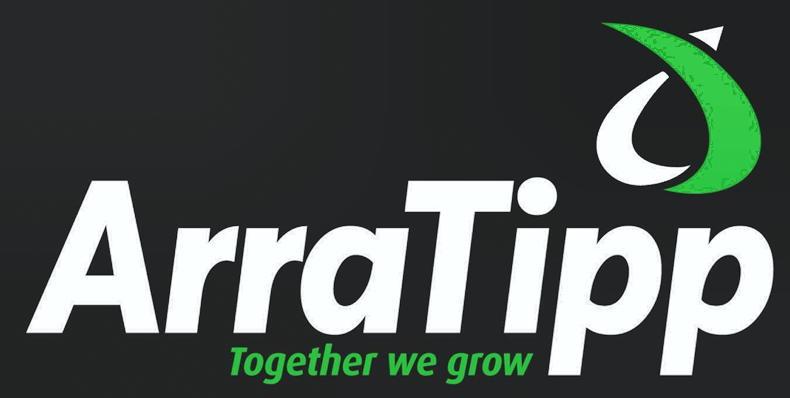
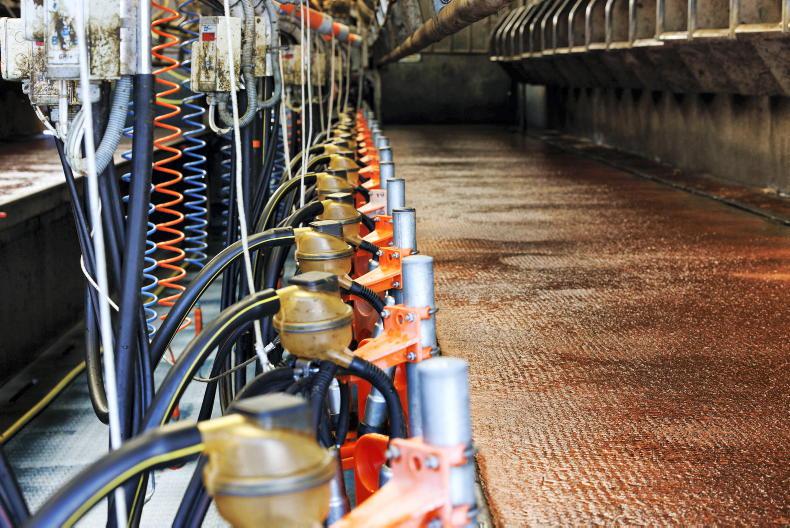
SHARING OPTIONS